Strategic Lifetime Gifting And How To Minimise Your IHT Liability During Your Lifetime
The Autumn Budget 2024 introduced some unexpected provisions regarding Inheritance Tax (IHT) that have wide-ranging implications for those whose estates are likely to be subject to IHT following their death.
Inheritance Tax is payable on an estate with a net value of more than £325,000. Any estate above that figure is charged at a flat rate of 40%. There are, of course, exemptions. For example, no IHT liability for transfers between spouses and civil partners exists. However, leaving your entire estate to your spouse or civil partner might be stoking up a future IHT liability.
This article will discuss the options available through lifetime gifting to minimise your exposure to Inheritance Tax. But before we look at estate planning, we must consider the changes introduced in the Autumn Budget 2024.
What changes did the Autumn Budget 2024 introduce?
Four key changes in the Autumn Budget 2024 impacted Inheritance Tax.
Freeze on nil-rate band
The nil-rate band of £325,000, below which you do not pay IHT, has been frozen until 2030. It had already been frozen by the previous government until 2028. The Chancellor’s Autumn Budget 2024 extended that freeze until 2030.
Unused Pensions to be subject to IHT from April 2027
The Autumn Budget 2024 introduced a new rule regarding unused pensions. Currently, unused pension funds fall outside the estate for IHT purposes. That means they do not count as part of the estate and are not subject to IHT. Some people who did not need to rely on their pension earmarked it for distribution to others after their death as it was outside their estate and not subject to IHT.
However, from 2027, any unused pension fund will be subject to IHT as part of the estate.
Agriculture and Business Property Relief changes
Currently, farmers and businesses are entitled to 100% relief on their business assets, which means these assets are not subject to IHT. However, starting in April 2026, any agricultural or business assets over £1 million will be subject to IHT at a reduced rate of 50% of the current rate. That means IHT will be charged on those assets over £1 million at a rate of 20%.
Residency-based IHT for former “non-doms”
The Autumn Budget 2024 abolished the “non-dom” status and moved to a residence-based taxation position. A foreign national who resides in the UK for at least 10 out of 20 tax years will be considered a “long-term resident”. Once this status has been established, their worldwide assets will be subject to UK IHT. Before this budget, their foreign assets were excluded from any IHT calculations. This will also impact offshore trusts, where any assets placed in an offshore trust, whilst the long-term resident held non-dom status, can now be included in the estate for IHT purposes.
Using Gifting to reduce your exposure to Inheritance Tax
Estate planning always considers lifetime giving as part of mitigating against IHT. When you dispose of assets through gifting, you potentially reduce your exposure to IHT. However, there are certain conditions you must fulfil if your estate is to avoid paying IHT.
The 7-year rule
It is generally known that if you gift property, assets or investments more than seven years before you die, these will no longer be considered part of your estate. All such gifts are considered “potentially exempt transfers” because they must meet specific criteria to be excluded from IHT calculations.
Potentially exempt transfers
HMRC define a potentially exempt transfer as a lifetime transfer of value that satisfies three conditions:
- It is a transfer by an individual made on or after 18 March 1986
- It would be a chargeable transfer apart from Section 3A of the Inheritance Tax Act 1984 (or, if only partly chargeable, is a potentially exempt transfer to the extent that it would be chargeable), and
- It is a gift to another individual or a specified trust.
This means the transfer must be for value to an individual or a specified trust where the transfer would be subject to IHT. Transfers between spouses do not count because they are exempt from IHT.
This means that if the gift donor survives for more than seven years, the gift’s value falls outside the estate and is not subject to IHT. However, the donor must divest themselves of the gift entirely.
Gifts with reservation of benefit
Gifts with reservation of benefit occur when the gift donor makes the gift but retains an interest in or benefits from it. A good example of this is when a parent transfers ownership of the family home to the children but remains living in it rent-free. While the donor has made a gift of the ownership, the donor benefits from the gifted property by continuing to live in it. In such circumstances, the house’s value would be included in the estate for IHT purposes.
Additional gift exemptions
There are also annual gift exemptions everyone enjoys. You can make annual gifts totalling £3,000 to anyone you want. If a child is getting married, you can give them a gift of £5,000. You can also make a wedding gift of £2,500 to a grandchild and £1,000 to anyone else.
In addition, you can make as many small gifts of £250 as you like.
Gifts to charities
Any gift you make to charity is exempt from IHT. This applies during your lifetime and on death. In addition, if you leave 10% or more of your estate to charity, the rate of IHT your estate will pay will be reduced from 40% to 36%. This can lead to substantial savings in very large estates.
Estate Planning following the Autumn Budget 2024
The overall rules about making gifts have not changed. However, the budget brought assets into the estate that previously were outside it and not subject to IHT.
Your tactics may need to change to address this. Regular lifetime giving, provided it is not a gift with reservation of benefit, probably remains the most straightforward way of reducing the value of your estate.
If you have an unused pension, depending on your personal tax situation, it may be beneficial to withdraw some of the fund and gift it to others. This would still be subject to an immediate income tax charge but might be IHT-efficient.
Dealing with the changes to agricultural and business property relief can be challenging as these are integral assets for your business. You will need to consider family involvement in the business and the basis of ownership of the assets. If you transfer ownership but continue in the business, it will likely be viewed as a gift with reservation of benefit.
The UK government has argued that allowances available to set against agricultural and business property are up to £3 million. However, that level of relief can only be achieved in limited circumstances.
Seek legal and financial advice before doing anything
Whatever you do, you must take legal and financial advice if you intend to take steps to mitigate your IHT exposure. Failure to carry out any estate planning and lifetime giving correctly can lead to the value of property, assets, and investments being added back into your estate’s value and subject to IHT.


